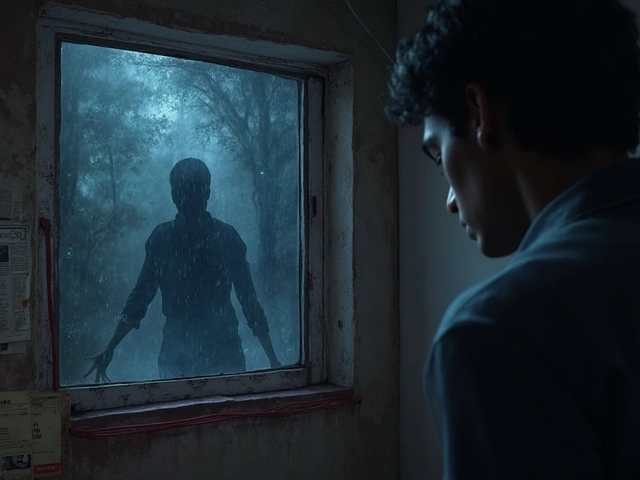
Picture hiking up a mountain with your kids and having your son Zane ask, "Who made this mountain?" Instead of a geologist answer, maybe you tell him the story of Atlas holding up the heavens or some wild legend from Norse myths. Mythology has that kind of power—it pops up in everyday questions, movie plots, video games, tattoos, and all the weird things kids ask. But when it comes to college, picking a major isn’t as straightforward as just clicking a button that says "Enroll in Mythology." The paths are way less obvious and, honestly, a lot more interesting than you might think.
Where Does Mythology Fit in College Majors?
Go hunting in any university course catalogue and you won’t find a major called “Mythology” at most colleges. That might feel like a letdown at first, especially if epic stories about gods and monsters light up your brain the way Greek amphorae did for me in my twenties. Instead, mythology usually hides under broader umbrellas. The most common one? Classics. If you see a Department of Classics, you’re in the right zone for heavy doses of Greek, Roman, and sometimes Egyptian and Mesopotamian stories—including their wild gods, epic heroes, and cautionary tales. Classics majors often dig into ancient languages (Latin and Ancient Greek) alongside their myths. For the more globally minded, some universities fold in Norse, Indian, East Asian, or Indigenous mythologies under Comparative Literature or World Literature majors. Religious Studies is another home base. Mythology isn’t just stories; it connects to how ancient (and some modern) societies explain the world and spiritual stuff. Some universities blend mythology courses right into their Religious Studies or Theology tracks, comparing ancient myths to sacred texts.
Anthropology is worth a shout. If you’re fascinated by what stories say about people and culture (why is trickster Loki like Anansi or Hermes?), anthropology can be an unexpected but satisfying major. Mythology pops up as a tool to dig into how societies see life, death, and everything in between. In the U.S., schools like Stanford, Harvard, and the University of Chicago offer robust Classics programs loaded with myth, but if you look at the U.K., you get degrees like Ancient History and Archaeology that pull in myths alongside artifacts. The key takeaway: universities rarely offer a straight “mythology major,” but you can pick programs that let you shape your coursework around myths by clever picking of electives and minors. Some schools, especially larger or more liberal arts–oriented ones, may let you design your own major (hello, Myth Studies!).
Classes You’d Actually Take (And Why They Matter)
So, say you’re brave, ignore the worried looks from family about practical careers, and sign up for Classics, Comparative Literature, or Religious Studies. What’s your day-to-day like? Expect everything from learning how ancient bards like Homer worked, to decoding symbols and monsters, to figuring out how myths still shape pop culture (Marvel movies owe a lot more to Thor and Loki than you’d think). Typical classes include:
- Greek and Roman Mythology—Zeus, Hera, Heracles, the works
- Myth and Meaning—a cross-cultural look, from the Sumerian Gilgamesh to the Japanese Amaterasu
- Introduction to Folklore—where everyday superstitions (don’t walk under ladders!) and fairytales collide with big myths
- Modern Retellings of Ancient Myths—how writers adapt ancient epics for today
- Comparative Religion—sorting myths from sacred stories is trickier than it looks
- Myth and Psychology—think Joseph Campbell and Jung’s archetypes
- Ancient Languages—optional, but some take Latin or Greek to read the old stuff in its original flavor
- Seminar in World Mythologies—deep dives into less familiar traditions, from African to Aboriginal lore
What’s wild is that some universities toss in VR experiences or creative writing workshops where you build your own myth worlds. Northeastern University in Boston offers a digital humanities course where people map myths using cool software. And at the University of Edinburgh, it’s not just Greek and Roman; you can explore Celtic and Scandinavian mythology right next door. The real kicker is that a lot of these courses overlap with history, philosophy, drama, art, or even linguistics credits. Flexibility is the name of this game, so you won’t paint yourself into a boring corner.

Where Do You End Up Job-Wise After Studying Mythology?
Let’s get real: telling your uncle you study myths usually earns a worried eyebrow. But what’s the point, career-wise? First, careers that seem "mythological" on paper don’t always come with grand titles, but the skillset is sneakily practical. You’ll get training in research, storytelling, creative thinking, pattern-spotting, and understanding symbols—that’s gold for a lot of fields. Here’s a rundown of some jobs real people (and a few friends of mine) have landed after majoring in something with a myth twist:
- Teaching—high school literature, world history, or university-level classics
- Museum work—curating, giving tours, designing exhibits that explain old cultures
- Publishing—writing or editing for magazines, books, or even designing museum guides
- Game design—myths are fuel for fantasy games, and designers need lore-heads
- Film and TV writing or consulting—myths shape epic movies and series plots
- Marketing or branding—you’d be shocked how much companies use mythological symbols in logos and ads
- Nonprofit or NGO work—especially in cultural heritage or educational nonprofits
- Creative writing—think novels, comics, poetry with mythic themes
- Library science—organizing mythology collections for research use
- Archaeology—myth sometimes helps interpret finds and artifacts
| Career Field | % of Mythology Graduates Working |
|---|---|
| Education | 34% |
| Museum/Heritage | 17% |
| Publishing/Media | 12% |
| Creative Industries | 16% |
| Other Paths | 21% |
Think about it: plenty of companies want someone who can spot patterns, read texts for hidden meanings, and build narratives out of weird facts. If you can explain why a corporation’s logo looks like Athena’s owl, you’ve got an interesting angle for brand consulting. Not everyone gets a job titled “Expert in Myth,” but the career skills you get are wide-ranging. The trick, if you want to work right with myths, is to scoop up internships, to network with museum people, and to pitch yourself in a creative, modern way. Write articles (the world always wants fresh takes on myth), keep learning new tech skills, and stay flexible.
Fun Facts & Tips for Mythology-Obsessed Students
You wouldn’t believe how many professors in mythology-heavy programs started out as lifelong fans of Tolkien or comic books. The point is, passion for myth runs deep, and plenty of schools actually encourage it now. Here are some little-known facts and bite-sized advice bits I wish I’d known earlier:
- Some schools hold annual myth storytelling competitions—like poetry slams, but for gods and monsters.
- Many libraries have rare book rooms with original editions of myth collections—go bug your campus archivist.
- A lot of mythology classes are now cross-listed with gender studies, psychology, and even environmental studies (Eco-Myth anyone?).
- Interested in Norse, Celtic, Slavic, or African myth but can’t find classes? Look for independent studies, study abroad, or build your own syllabus with a willing professor.
- Ever read Percy Jackson or Neil Gaiman’s books? Universities now use these modern stories to bring old myths alive—don’t be shocked if your assigned reading gets epic and weird.
- If languages feel intimidating, look for "myth in translation" classes before taking the plunge into Ancient Greek verbs.
- Joining campus clubs—like Renaissance fair societies or creative writing groups—can connect you with other mythology fans and open unexpected doors.
- Sometimes, even philosophy or art history departments run epic myth-centric modules—ask around or stalk syllabuses online.
- Shoot for scholarships—there are quirky ones for students researching unusual myth topics, especially from heritage and culture foundations.
- Start a mythology blog or social account while in school. It can get you noticed by grad programs, museums, or even publishers.
Last, remember: myth isn’t just about ancient stuff. Pick any week—there’s a movie, show, or video game that owes everything to ancient stories. This field is alive and kicking, so if you’re passionate, don’t let anybody talk you out of it for sounding “impractical.”

How to Build a Mythology-Focused Degree
Since very few schools offer a direct mythology track from day one, you need a bit of planning. Here’s the route most students take if they want to immerse themselves in myth without losing their way in the university maze:
- Pick a Flexible Major. Classics, Comparative Literature, Religious Studies, and even Anthropology are popular choices with plenty of myth courses.
- Choose a Minor or Second Major. Add Ancient Languages, Creative Writing, Art History, or Drama for a custom flavor.
- Stack Your Electives. Go heavy on every myth, folklore, symbol, or legend course you can find. Don’t forget summer school or study abroad for tricky-to-find content.
- Look for Interdisciplinary Certificates. Big universities, like UCLA or UChicago, often offer certificates in Medieval Studies, Folklore, or even Pagan Studies, which can turbo-charge a mythology focus.
- Befriend Professors Who Love Myth. They’re your allies for independent studies or customized project topics.
- Get Involved With Off-Campus Programs. Museums, local libraries, archaeological digs, or cultural events can turn classroom learning into hands-on experience.
- Capstone Projects. Many programs let you design an end-of-degree research project—pick something wild, like "Comparing Trickster Gods Across Cultures," to stand out.
- Intern For Real-World Experience. Museums, heritage sites, publishing companies, and even podcast producers hunt for creative thinkers with myth backgrounds.
- Network Like Crazy. Mythology buffs are everywhere, from TikTok to literary conferences. Reach out, share your projects, and collaborate.
- Stay Curious. The world of myth stretches way beyond what’s in a textbook—keep exploring modern pop culture, art, and social media for fresh angles.
This kind of degree path takes effort, but it pays off for people who love stories, culture, and creativity. You don’t have to wait for the perfect “mythology” major—just put the pieces together yourself. Colleges love self-starters, and your passion will show.


